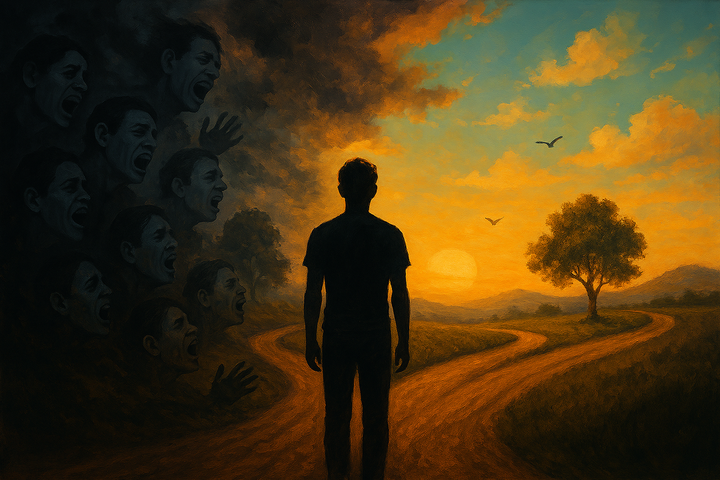Read next

Mortality
A personal story that leads to a meditation on death...

Love, Borderline Personality Disorder and The Space Between
Love under BPD feels electric and unstable. Intense highs collapse into despair without warning. Yet in naming the chaos, the author finds hope, understanding, and connection.

The Art of Settling
Far too many of us see standing out and being true to who we are as an act that's too heavy to bear. So we convince ourselves that "good enough" is happiness and that "safe" leads to satisfaction. But easy rarely ever leads to true fulfilment.
